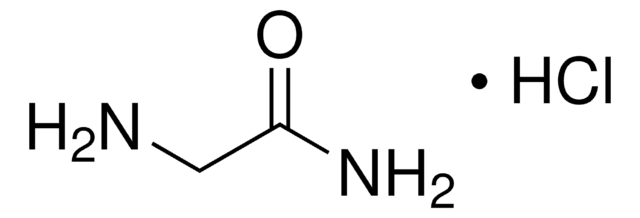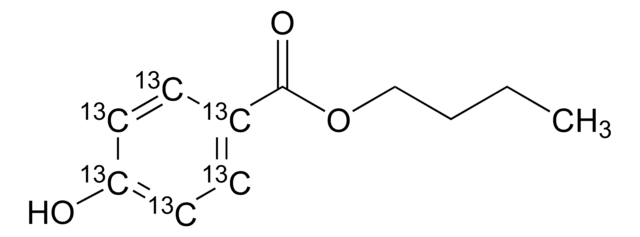54680
Butyl 4-hydroxybenzoate
≥99.0% (GC)
Sinónimos:
p-Hydroxybenzoic acid n-butyl ester, Butyl paraben
About This Item
Productos recomendados
assay
≥99.0% (GC)
bp
156-157 °C/3.5 mmHg (lit.)
mp
67-70 °C (lit.)
68-70 °C
SMILES string
CCCCOC(=O)c1ccc(O)cc1
InChI
1S/C11H14O3/c1-2-3-8-14-11(13)9-4-6-10(12)7-5-9/h4-7,12H,2-3,8H2,1H3
InChI key
QFOHBWFCKVYLES-UHFFFAOYSA-N
¿Está buscando productos similares? Visita Guía de comparación de productos
Categorías relacionadas
Application
signalword
Danger
hcodes
Hazard Classifications
Eye Dam. 1 - Skin Irrit. 2
Storage Class
11 - Combustible Solids
wgk_germany
WGK 1
ppe
Eyeshields, Gloves, type N95 (US)
Certificados de análisis (COA)
Busque Certificados de análisis (COA) introduciendo el número de lote del producto. Los números de lote se encuentran en la etiqueta del producto después de las palabras «Lot» o «Batch»
¿Ya tiene este producto?
Encuentre la documentación para los productos que ha comprado recientemente en la Biblioteca de documentos.
Los clientes también vieron
Nuestro equipo de científicos tiene experiencia en todas las áreas de investigación: Ciencias de la vida, Ciencia de los materiales, Síntesis química, Cromatografía, Analítica y muchas otras.
Póngase en contacto con el Servicio técnico














